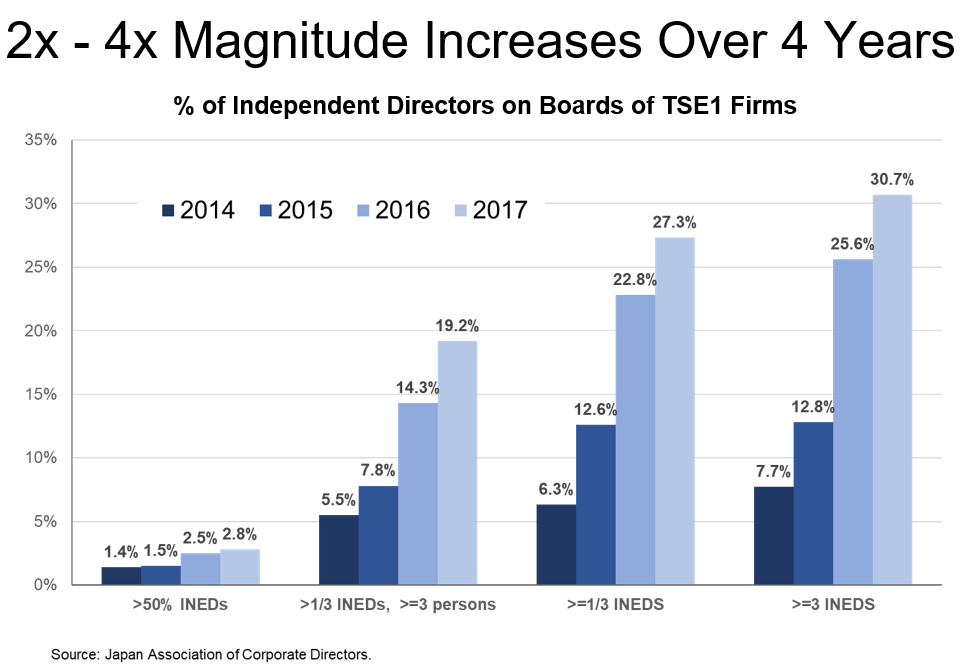A while back I spent some time writing an engagement letter (in both English and Japanese) that I myself would use if I was the head of governance and proxy voting at an investing institution that held positions in more than a handful of Japanese companies, and did not have enough time to meet with all of them, say, six or more times a year so as to do detailed “engagement” mainly via face-to-face meetings. This actually includes most institutional investors, when you think about it. I thought it might be helpful for friends of mine.
It has always seemed to me that in order for engagement to be efficient, you need to write down in detail your suggestions for companies, and send it out to them as early as you can – giving them a year or more of lead time to put new practices in place, if that is what one hopes. Otherwise, in Japan very much gets “lost in translation”, and even less will reach the board. Many governance practices are new in Japan, and just referring to them verbally will usually not be sufficient to fully communicate. (As the person who proposed Japan’s corporate governance code in order for effective “stewardship” to occur, and having sat on a number of boards, I have done a lot of thinking about this topic.)
To me, therefore, “efficient engagement” means that: a) you will send a letter or letters to the company’s board, one that will be largely or wholly standardized; but b) you may meet, or may never meet with the company, as you choose. You do not have to have multiple meetings with multiple companies, which for most investing institutions would be a very inefficient way to “engage”, particularly if little is put in writing.



